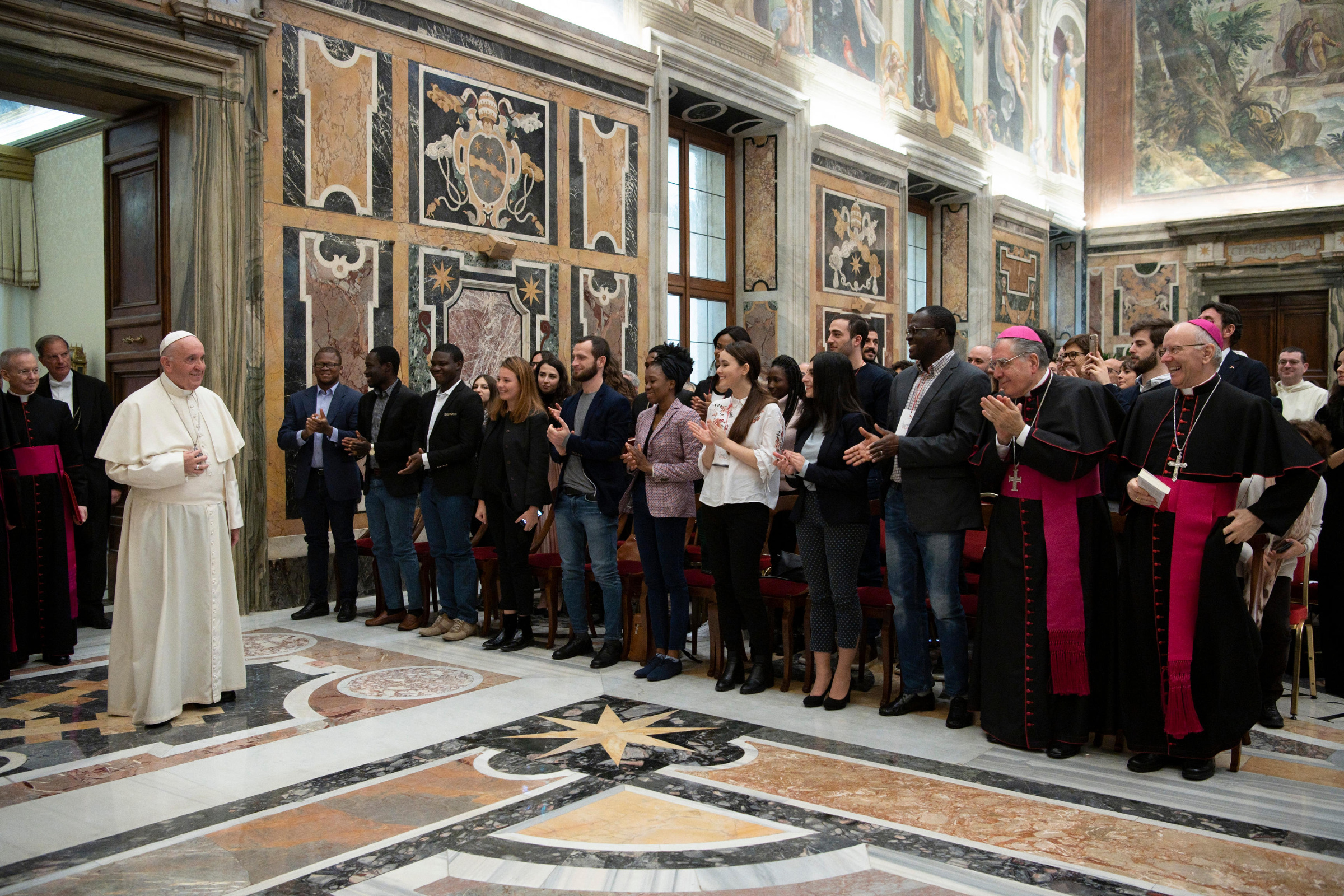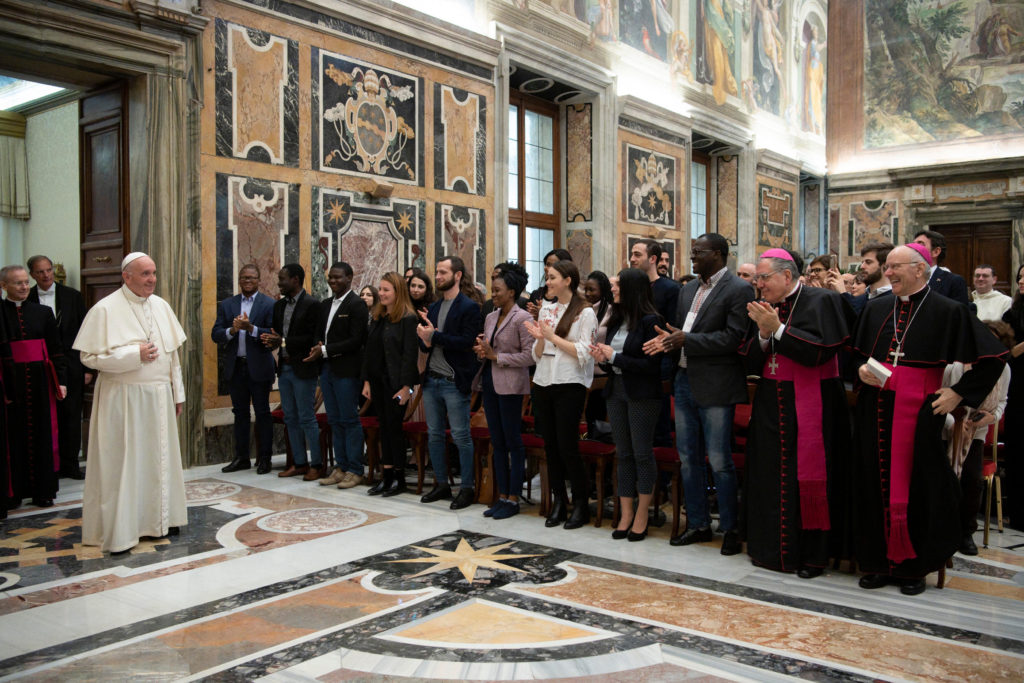
VATICAN CITY (CNS) — The world needs leaders who are humble and willing to talk with their enemies with the aim of leading their countries toward peace, Pope Francis said.
“Those politicians who do not know how to dialogue and confront each other are not leaders of peace,” he told residents and supporters of Rondine-Citadel of Peace, a peace and reconciliation project based near Arezzo in central Italy.
“Leaders who do not make an effort to go meet the ‘enemy,’ to sit with them at the table and do what you do, they cannot lead their people to peace. To do this requires humility and not arrogance,” he told the group of young people at the Vatican Dec. 3.
The Rondine project hosts young people from nations that have experienced or still experience war and conflict; the young people live, study and work together, discovering their “enemy” is a human being like them, according to the organization’s website. The two-year program aims to give students the tools to be creative, active leaders even in complex, high-conflict situations.
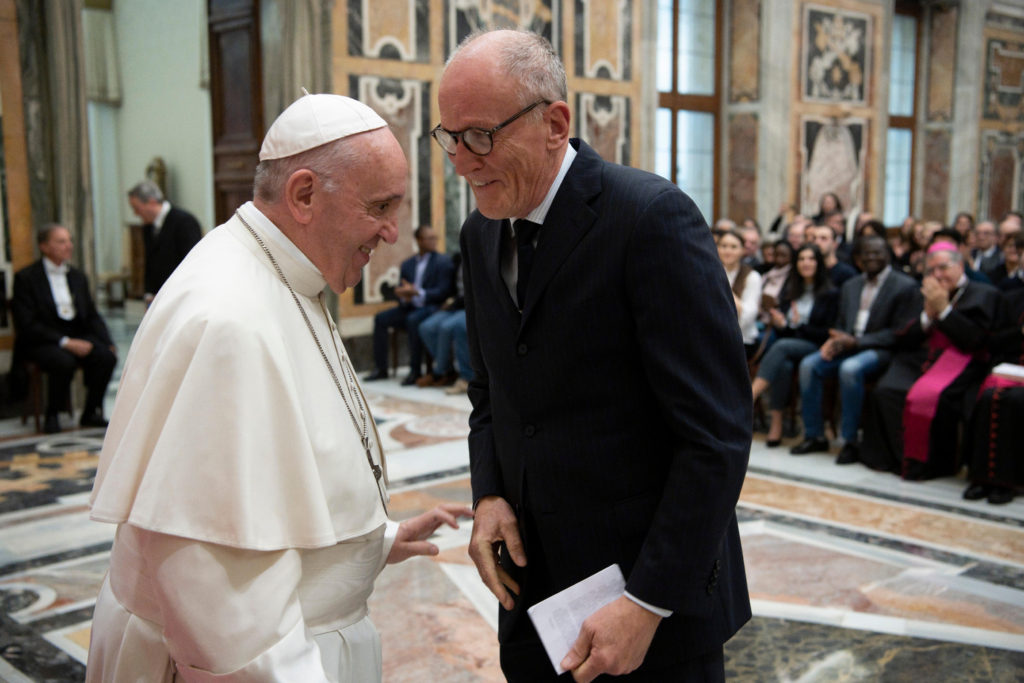
To celebrate the 70th anniversary of the Universal Declaration of Human Rights, representatives of Rondine were to address all 193 member-states of the United Nations Dec. 10 in New York to ask that every government redirect a small sum from its defense budget and put it toward training new global leaders who can intervene wherever there are major conflicts.
Pope Francis, who was told about the appeal, praised the initiative and said he will support the effort and ask all heads of state and government to do the same.
“May your voice — frail, but strong in youthful hope and courage — be heard Dec. 10 at the United Nations. Leaders with a new mentality are needed,” he said.
“Peace, in fact, is the responsibility of everyone,” Pope Francis said.
“With everyone’s efforts we must finally eliminate war from the planet and from the narrative of humanity,” he added.
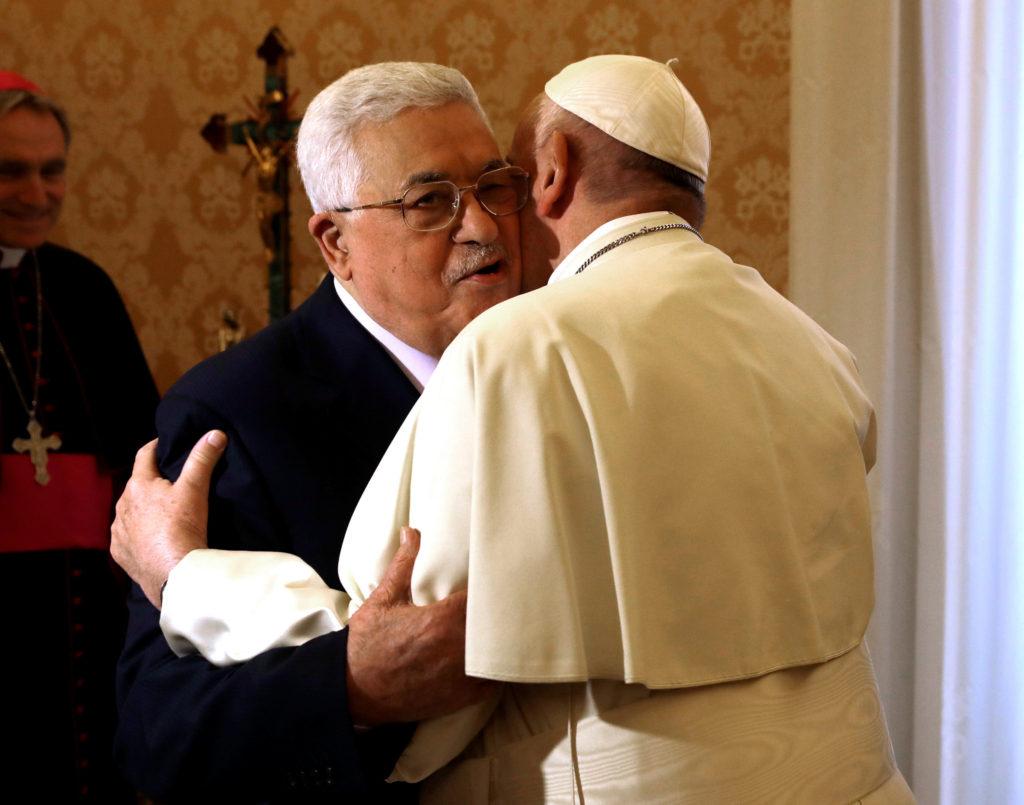
Pope, Palestinian president hope to restart peace process
The same day, Pope Francis welcomed Palestinian President Mahmoud Abbas to the Vatican and the two spoke privately for 20 minutes. The pope and President Abbas renewed their commitment to peace in the Holy Land and a two-state solution to resolve the conflict between Israel and Palestine, the Vatican said.
In a statement released after their meeting, the Vatican said the two leaders focused on “efforts to reactivate the peace process between Israelis and Palestinians, and to reach a two-state solution, hoping for a renewed commitment on the part of the international community to meet the legitimate aspirations of both peoples.”
Pope Francis and Abbas also discussed the status of Jerusalem and underlined “the importance of recognizing and preserving its identity and the universal value of the holy city for the three Abrahamic religions.”
Tensions over the city rose again in December 2017 after President Donald Trump announced his decision to move the U.S. embassy to Jerusalem from Tel Aviv, fulfilling a promise he made during his presidential campaign.
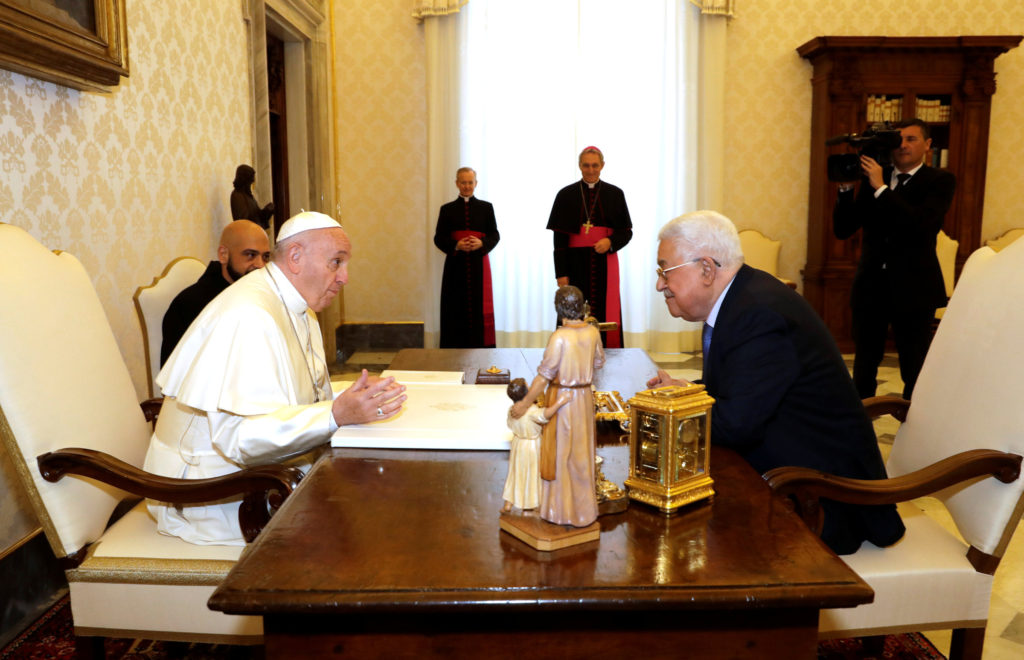
The announcement sparked anti-U.S. protests throughout Asia and the Middle East and drew warnings from Middle Eastern and European leaders that overturning the United States’ long-standing policy would further complicate peace negotiations.
Abbas presented the pope with a painting of the Old City of Jerusalem and said, “This represents the spirit of the Old City of Jerusalem.”
He also gave the pope a book titled, “Two Lands of Holiness,” a historical book about the Holy Land and Vatican City as well as a hand-carved wooden panel.
The pope gave the president a commemorative medallion depicting St. Peter’s Basilica in the 1600s and a copy of his 2018 message for the World Day of Peace.
“It is from this year and I signed it with today’s date,” the pope said as he gave him the message.
Taking his leave, Abbas warmly embraced the pope, who thanked the Palestinian president for visiting.
“I am happy about this meeting,” Abbas replied. “We are counting on you.”
Carol Glatz and Junno Arocho Esteves contributed to this article.



